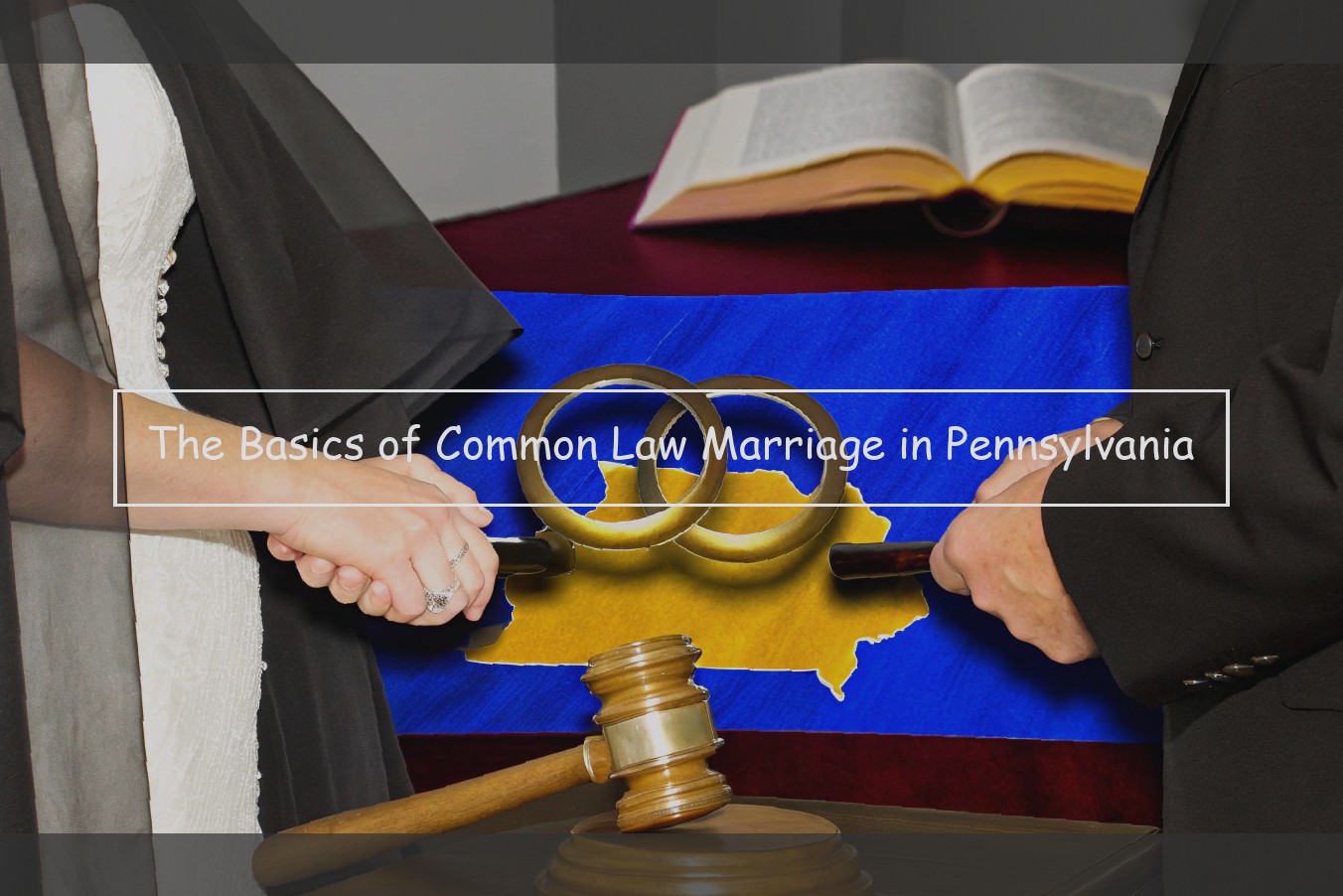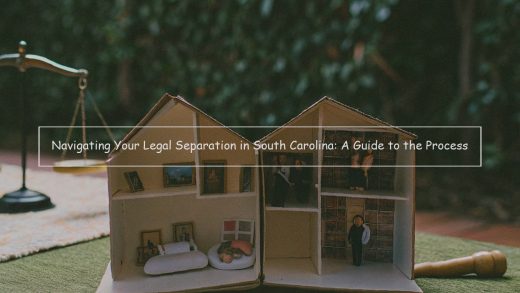
What is a Common Law Marriage?
Common law marriage is a type of implicit marriage in which two parties cohabitate and agree that they are married. This type of marriage differs from a traditional marriage in which a couple obtains a marriage license and participates in a marriage ceremony before a person with the legal authority to perform marriages. In a common law marriage, on the other hand, no license or religious ceremony is required. Common law marriages are no longer permitted in most states, but Pennsylvania still recognizes this type of relationship.
The courts historically did not legally recognize marriages unless an official ceremony took place. For this reason, people relying on common law marriages sometimes tried to provide proof of their marriages after separation in order to obtain benefits such as health insurance , survivor benefits and Social Security benefits. The courts started permitting recognizing common law marriages so that the parties would not lose out on benefits. It also reduced court congestion by avoiding litigation over whether a marriage existed.
In Pennsylvania, common law marriages were valid until January 1, 2005. For couples who entered into a common law marriage before that date, the Pennsylvania Supreme Court ruled in 2017 that the spouses’ rights and obligations will be the same as those for couples who entered into valid marriage licenses. That means that those with common law marriages are entitled to the same benefits as other married couples.
Where Does Pennsylvania Stand with Common Law Marriage?
In 2005, the Pennsylvania legislature abolished common law marriage for new unions. However, parties that established a marriage under common law prior to 2005 are still considered legally married in the eyes of the law.
Effective January 1, 2005, the amendment to Pennsylvania’s Marriage Law provided:
"No such marriage shall be effective unless valid under the laws of this Commonwealth as of the date of the marriage."
This passage means that parties currently involved in divorce or custody proceedings who were married under common law prior to 2005 are still considered married, and must go through the proper channel to have their marriage legally dissolved.
Common law marriage was a legal method of marrying in Pennsylvania until the mid-twentieth century, when, according to the Pennsylvania Department of Transportation, the number of marriage license applications exceeded the number of common law unions. The amendment was passed by the Pennsylvania legislature citing this fact, along with a decrease in enforcement mechanisms to prosecute as well as the arbitrary nature of when two parties were determined to enter into a common law marriage.
Common Law Wife – Rights & Responsibilities
Rights and Responsibilities of a Common Law Wife in Pennsylvania
It is essential to understand who makes decisions when it comes time for you or your spouse to take time off from work. Will someone else make medical decisions in the event that you are incapacitated? Often, if there is no will, the spouse makes these important decisions. However, does that decision-making authority extend as far as making legal claims? Will estate planning ever be necessary for a common law wife? With no legal marriage certificate, the common law spouse may not have any rights to inherit her partner’s estate. On the other side of the coin, the common law spouse is not liable for any debts or contract in which the partner entered into in his or her own name. For example, a married couple is financially responsible for debt and they are both liable because of the marital agreement. But for a common law couple, there is no liability for the debts. If you think you may have a claim, time is of the essence. Pennsylvania provides elements of a cause of action upon which a common law spouse may rely, but there is a statute of limitations that limits the window within which to file a lawsuit. For example, if you believe that you deserve to be included in your partner’s will because he or she left a 401(k) or retirement account to someone else, you must file a lawsuit within four months of the death to seek reimbursement for the asset. If you fail to initiate legal action within that timeframe, you waive the right to recover it.
Proof of Common Law Marriage & Recognition
To prove the existence of a common law marriage in Pennsylvania, a party to the marriage must provide sufficient evidence to establish the three elements of a common law marriage. If a common law marriage is correctly established, it is fully recognized by the courts in Pennsylvania. To prove the existence of a common law marriage, the following questions must be answered: (i) whether the couple took each other by the right name, (ii) whether it was mutually agreed that they were married, and (iii) whether each person intended to be married.
In Davis v. Davis, 648 A.2d 3, 6-7 (Pa. Super. 1994), the court stated that there is no mandatory rule of law as to what evidence will establish a common law marriage, rather, the evidence is judged on a "case by case basis." Courts consider both direct and circumstantial evidence to determine if a marriage exists. Direct evidence includes testimony from individuals who are familiar with the parties to the marriage. In contrast, circumstantial evidence is the surrounding circumstances establishing the parties’ intent to be married and the parties’ conduct with others. A common law marriage may not be proven solely by subjective testimony. Because the question is whether the parties had the necessary intent, which is subjective , in each particular case, more than subjective evidence is required.
The Long Distance Marriage
In Miller v. Miller, 634 A.2d 172 (Pa. Super. 1993), the Commonwealth Court in Pennsylvania found that long distance relationships that qualify as a common law marriage require evidence to support the belief that the parties intended to marry, even where each party, on his or her own, believed they were married. The court stated "Intent to be married can be inferred in a long distance relationship based on the parties’ conduct directly toward each other or their conduct within their respective communities and families." Id.
Although the court in Miller had very specific facts, generally the court looks at the parties’ behavior toward one another, from the perspective of an outsider, and the parties’ conduct within the community. For instance, the court considers the name by which the parties refer to one another, whether they have joint property, whether they use one another’s surname, whether they pay one another’s bills, the duration of the relationship, whether each person participated in the relationship for personal happiness or material gain, and if possible, testimonial evidence of intent or acceptance of the relationship by friends, family and the community.
Challenges & Misconceptions
There are certain challenges that can come with claiming common law marriage status in Pennsylvania. First, because it is so rare, many people are not aware of the rules and limitations that go along with it. That includes judges who might not be familiar with the cases or the feel of managing litigation involving such a unique marital status.
Another problem stems from the fact that common law marriage is often used in the same way as "informal" marriage. Where a couple has lived together for a long time, other people might call them "common law married" out of convenience, rather than acknowledging the real legal implications of such a title. This can create confusion when those individuals separate and become embroiled in domestic litigation. Even if each party is determined to observe the letter of the law, personal dramas can sometimes get in the way. In some instances, married couples fail to understand that a common law marriage is just as legally binding as any other type of legal union.
One misconception surrounding common law marriage is that one or both parties must file paperwork. Many other states do not require court filings or couple’s licenses to validate a common law marriage, but Pennsylvania does. If no license was issued prior to the 2005 Supreme Court ruling, then the couple must have a joint property title on which their names are located. The ruling did not apply retroactively, so couples can still be considered common law married if their marriage occurred prior to the 2005 ruling.
In many states, residence is not a factor in validating common law unions. Pennsylvania, however, will only recognize common law marriages between couples who established residence in that state. Even so, age and domicile requirements are malleable; parties can satisfy them without actually living in PA. Clients are not often aware of this, so it may be prudent to consult with counsel regarding other states’ interpretations of common law marriage.
Generally speaking, common law marriage is often said to exist when two people with a mutual understanding and intent to be married share cohabitation for some period of time. However, many people are unclear as to the length of time necessary to establish a common law marriage. Coinciding with Pennsylvania’s former four-year time frame for annulment, many believe that four years is required for a common law union to qualify under the law. In contrast, as many recent cases have proven, there is no fixed duration; in any event where the circumstances indicate that a couple is married in everything but name, that relationship will satisfy the requirements for common law marriage.
Some people mistakenly believe that they are not legally married until they dissolve the relationship through divorce proceedings. Even in a situation where there is no formal marriage license, the marriage exists, and can only be terminated by divorce.
Representation and Advice
In Pennsylvania, establishing or dissolving a common law marriage is not a straightforward process. This is because the state prohibits people from establishing a common law marriage after Jan. 1, 2005; however, in order to end a common law marriage, you must get a divorce, just as you would for a formal marriage that was legally recognized when it began — and, of course, some common law marriages were in place long before the 2005 deadline.
Given the complex nature of these cases — to say nothing of the potential ramifications for your finances , real estate and property division — consulting with a lawyer can make things far easier, and allow you to start off on the right foot whether you’re attempting to establish a common law marriage, or dissolve a common law marriage into a full divorce.
A family law attorney can be a source of sound advice for: While dealing with the minutiae of a marriage — regardless of how you became married — a savvy Pennsylvania family law attorney will be your best bet of enjoying a positive outcome.


